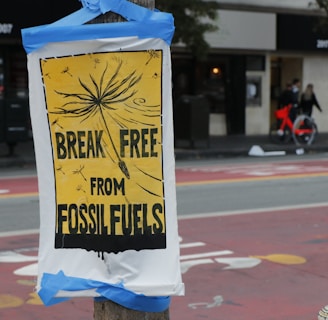"Supporting Environmental Sustainability: Challenges and Opportunities in the Modern Era"
Environmental sustainability is a collective responsibility. With a better understanding of contemporary environmental challenges and ongoing efforts, we can play a vital role in securing the future of our planet. The provided references offer valuable insights into these issues, underpinning the steps necessary to realize a more sustainable world.
INFO BIZ


Environmental sustainability is one of the paramount issues dominating global discourse in contemporary times. With challenges such as climate change, species extinction, and ecosystem degradation, this article delves into current environmental sustainability issues and emerging opportunities and initiatives. The provided references aim to offer an in-depth understanding of these pressing concerns.
1. Climate Change and its Impacts
Climate change stands as one of the most formidable challenges facing the world today. Recent research indicates global temperature rise, sea-level elevation, and unforeseen alterations in weather patterns. References from the Intergovernmental Panel on Climate Change (IPCC) and scientific studies from around the globe will facilitate a deeper comprehension of climate change developments.
References:
Intergovernmental Panel on Climate Change (IPCC). (2021). "Climate Change 2021: The Physical Science Basis." https://www.ipcc.ch/report/ar6/wg1/
Wuebbles, D. J., et al. (2017). "Executive Summary." In: Climate Science Special Report: Fourth National Climate Assessment, Volume I. U.S. Global Change Research Program.
2. Renewable Energy: A Solution to Climate Change
One solution to mitigate the effects of climate change lies in transitioning to renewable energy sources. This section outlines how solar, wind, and hydro energy can play a pivotal role in reducing carbon emissions and creating a more sustainable world.
References:
International Renewable Energy Agency (IRENA). (2021). "World Energy Transitions Outlook 2021." https://www.irena.org/publications/2021/Mar/World-Energy-Transitions-Outlook-2021
Jacobson, M. Z., & Delucchi, M. A. (2011). "Providing all global energy with wind, water, and solar power, Part I: Technologies, energy resources, quantities and areas of infrastructure, and materials." Energy Policy, 39(3), 1154-1169.
3. Environmental Conservation and Biodiversity Protection
The loss of biodiversity poses a serious threat to our planet. This section discusses conservation efforts and biodiversity protection. We examine successful initiatives and the importance of preserving natural ecosystems.
References:
Convention on Biological Diversity (CBD). (2021). "Post-2020 Global Biodiversity Framework." https://www.cbd.int/post2020/
IPBES. (2019). "Global Assessment Report on Biodiversity and Ecosystem Services." https://ipbes.net/global-assessment
4. Waste Reduction and Product Lifecycle
A reevaluation of our production and disposal practices is imperative. This section emphasizes the importance of waste reduction and eco-design principles in creating more sustainable products. Concepts like the circular economy and recycling are also discussed.
References:
Ellen MacArthur Foundation. (2020). "Circular Economy in Cities: Evolving the Model for a Sustainable Urban Future." https://www.ellenmacarthurfoundation.org/assets/downloads/publications/Circular-Economy-in-Cities-2020.pdf
European Environment Agency (EEA). (2021). "The European Environment—State and Outlook 2020: Knowledge for transition to a sustainable Europe." https://www.eea.europa.eu/soer/2020.
Conclusion
Environmental sustainability is a collective responsibility. With a better understanding of contemporary environmental challenges and ongoing efforts, we can play a vital role in securing the future of our planet. The provided references offer valuable insights into these issues, underpinning the steps necessary to realize a more sustainable world.
